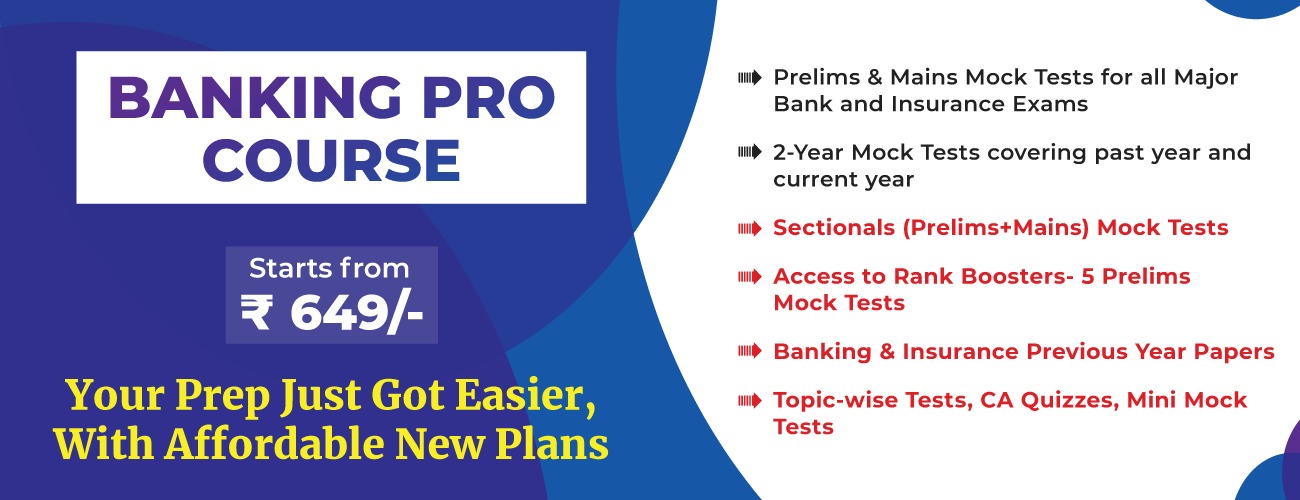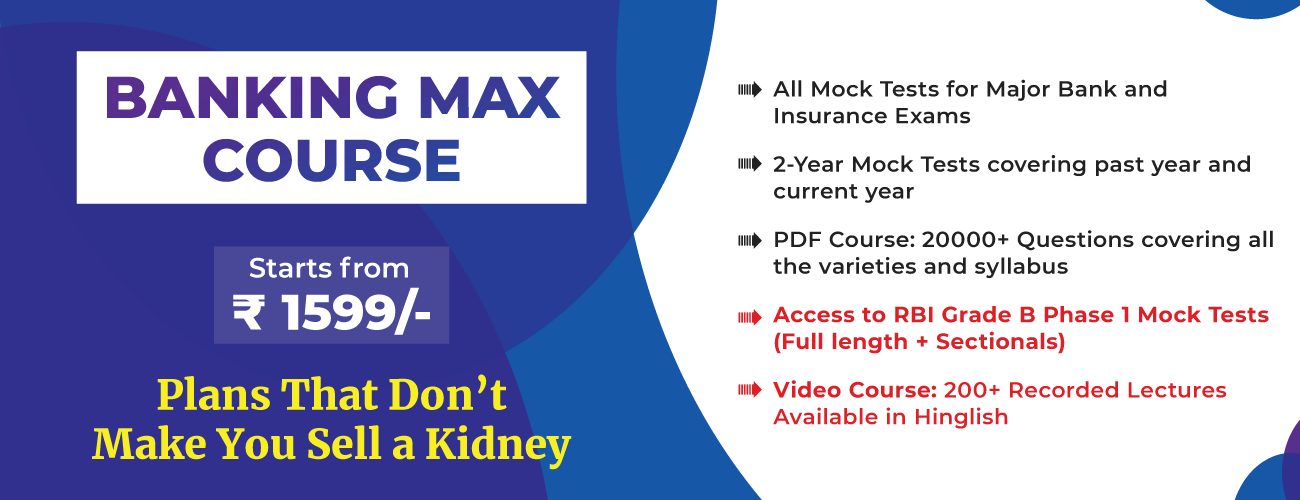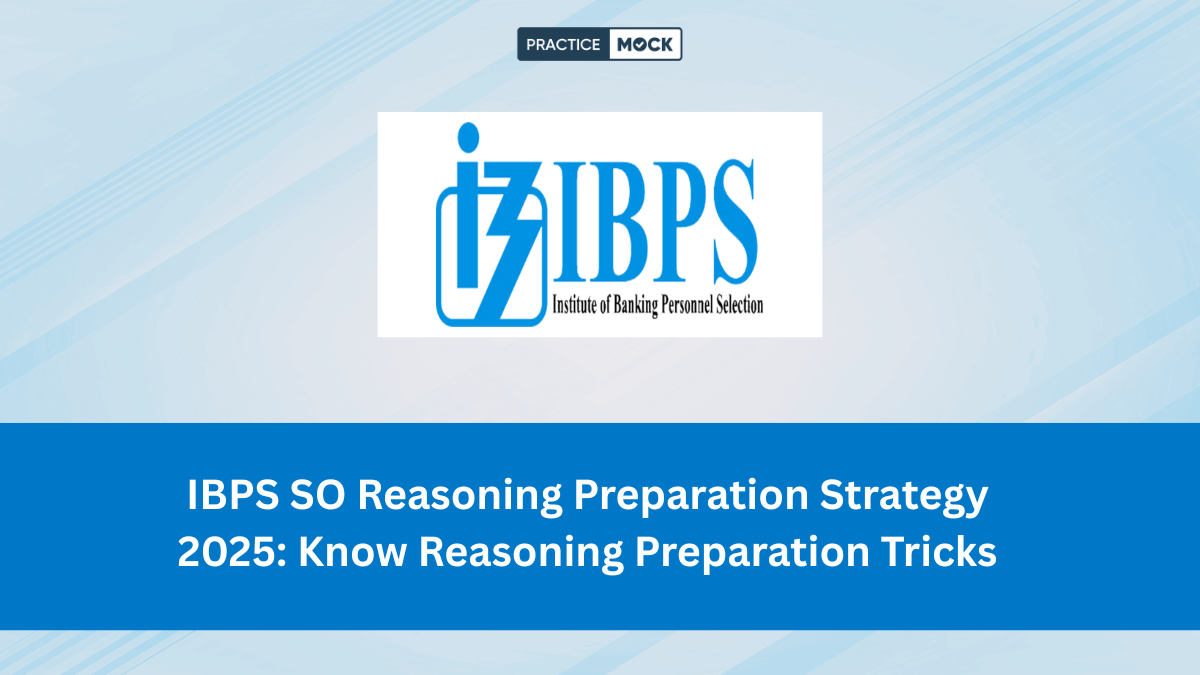The reasoning ability section in the IBPS Specialist Officer (SO) 2025 exam is one of the most challenging yet highly scoring areas. Designed to test candidates’ logical thinking, analytical abilities, and decision-making skills, this section plays a significant role in determining your overall score. Since reasoning questions demand sharp problem-solving and time-management skills, preparing effectively can help you stand out from the competition.
This blog provides actionable reasoning preparation strategies, breaks down key topics, and includes a 30-day study plan to streamline your preparation. Whether you’re aiming to strengthen your weak areas or maximize your existing skills, this guide is tailored to elevate your performance.
Why Reasoning Preparation is Crucial
The reasoning ability section is more than just calculations or recall-based questions — it’s focused on how well you can analyze patterns, structure arguments, solve complex problems, and manage your time under pressure. Here’s why mastering reasoning could be your ticket to success:
- High-Scoring Potential – Logical reasoning questions have definitive answers, offering a strong opportunity to score if tackled correctly.
- Time Challenges – Many questions require keen observation and rapid decision-making within strict time limits.
- Role Relevance – Logical thinking and problem-solving are critical skills for Specialist Officers handling banking operations.
Reasoning isn’t just a test of intelligence—it’s a test of strategy. By refining your approach and dedicating time to practice, you can achieve both speed and accuracy.
Key Topics for IBPS SO Reasoning Section
The reasoning section can be broadly divided into verbal and non-verbal reasoning. Below is a detailed breakdown of the topics you must focus on:
1. Puzzles and Seating Arrangements
Subtopics:
- Linear arrangements
- Circular arrangements
- Complex puzzles (e.g., floor-based, box-based)
Why it’s important:
- These topics dominate the reasoning section, making them critical for both prelims and mains.
- Puzzles test your ability to organize and analyze information systematically.
Preparation Tip: Start with simple puzzles and gradually progress to more complex ones. Focus on understanding constraints rather than guessing answers.
2. Syllogisms
Why it’s important:
- Tests your ability to draw logical conclusions from given statements.
Preparation Tip: Master Venn diagrams and practice decoding different types of syllogisms, including possibility-based questions.
3. Blood Relations
Why it’s important:
- These quick and straightforward questions offer an easy opportunity to secure marks.
Preparation Tip: Use diagrams to map out relationships, and familiarize yourself with common familial terms.
4. Inequalities
Why it’s important:
- Inequality questions are generally direct, making them great options for quick scoring.
Preparation Tip: Solve 10 questions daily to build proficiency. Focus on simplifications involving both direct and coded inequalities.
5. Order and Ranking
Why it’s important:
- Tests your ability to rank individuals or entities based on given conditions.
Preparation Tip: Create visual representations to simplify relative position problems.
6. Alphanumeric Series and Coding-Decoding
Why it’s important:
- These questions test basic pattern recognition and logical application.
Preparation Tip: Practice letter-number pair questions and coded message problems to familiarize yourself with common patterns.
7. Input-Output and Machine Coding
Why it’s important:
- Frequently asked in mains, these questions often involve multi-step sequences.
Preparation Tip: Understand the logic of each step and practice identifying patterns quickly.

Summary Table of Reasoning Topics
| Topic | Weightage | Difficulty | Recommended Prep Time |
| Puzzles & Arrangements | High (15-20 Qs) | High | 8-10 hours per week |
| Syllogisms | Medium (4-5 Qs) | Medium | 4-5 hours per week |
| Blood Relations | Medium (3-4 Qs) | Low | 2-3 hours per week |
| Inequalities | Medium (5-6 Qs) | Low | 3-4 hours per week |
| Alphanumeric Series | Low (2-3 Qs) | Easy | 2-3 hours per week |
| Input-Output | Medium (4-5 Qs) | Medium-High | 3-4 hours per week |
Focusing on high-weightage areas like puzzles while maintaining regular practice in other topics ensures optimal preparation.
Time Management Tips for the Reasoning Section
Efficiency is key in the reasoning section. Use these time management tips to ensure you avoid wasting precious minutes during your exam:
- Prioritize Easy Questions First:
Start with topics like syllogisms or inequalities, which are quick to solve and deliver quick scores.
- Allot Fixed Time for Dense Questions:
Limit the time you spend on puzzles and seating arrangements. Overspending time on one set can jeopardize your performance in other areas.
- Skip and Return to Difficult Questions:
If a puzzle seems confusing, skip it and come back after completing easier sections.
- Practice with a Timer:
Use mock tests to simulate exam scenarios, ensuring you complete the reasoning section within the allocated time.
- Categorize Questions into Easy, Medium, and Hard:
Develop a habit of categorizing questions based on their complexity. Attempt questions scoring higher on the “easy” scale first.
30-Day Study Plan for IBPS SO Reasoning
The below plan is designed to give you comprehensive coverage of the syllabus and regular practice:
Week 1 (Days 1-7): Build a Solid Foundation
- Daily Goals:
- Solve 5 inequalities, 2 syllogisms, and 2 blood relation questions per day.
- Dedicate 30 minutes to learning strategies for simpler puzzles and arrangements.
Week 2 (Days 8-14): Advance to Moderate Topics
- Daily Goals:
- Solve medium-level puzzles (linear and circular) and alphanumeric series daily.
- Practice coding-decoding and input-output for 45 minutes every day.
- Attempt 1 sectional mock test at the end of the week.
Focus Areas for Week 2:
- Master visualizing puzzles and input-output sequences quickly.
Week 3 (Days 15-21): Test Readiness with Mixed Practice
- Daily Goals:
- Alternate between medium and hard-level puzzles each day.
- Solve at least 3-4 full reasoning sets (varied topics).
- Review performance and refine problem-solving techniques.
Week 4 (Days 22-30): Final Push and Revision
- Dedicate time to revising all notes and solving mock tests daily.
- Focus on speed and accuracy with timed practice sets.
- Spend extra time analyzing previously unsolved or skipped questions to strengthen weak areas.

Final Thoughts
Excelling in the reasoning ability section of the IBPS SO 2025 exam is achievable with a structured preparation plan, consistent practice, and strategic time management. Focus on understanding complex concepts, simplifying patterns, and refining decision-making skills.
Remember, the key to success isn’t just hard work but working smart. Stick to the 30-day plan, use the preparation tips shared above, and don’t forget—regular practice and analysis are your best allies. Wishing you all the best in your preparation!
Also Read:
| IBPS SO Study Plan | IBPS SO English Prep Strategy |
| IBPS SO Quant Prep Strategy | IBPS SO Salary- Updated Guide |
- Sign Up on Practicemock for Updated Current Affairs, Topic Tests and Mini Mocks
- Sign Up Here to Download Free Study Material
Free Mock Tests for the Upcoming Exams
- IBPS PO Free Mock Test
- RBI Grade B Free Mock Test
- IBPS SO Free Mock Test
- NABARD Grade A Free Mock Test
- SSC CGL Free Mock Test
- IBPS Clerk Free Mock Test
- IBPS RRB PO Free Mock Test
- IBPS RRB Clerk Free Mock Test
- RRB NTPC Free Mock Test
- SSC MTS Free Mock Test
- SSC Strenographer Free Mock Test
- GATE Mechanical Free Mock Test
- GATE Civil Free Mock Test
- RRB ALP Free Mock Test
- SSC CPO Free Mock Test
- AFCAT Free Mock Test
- SEBI Grade A Free Mock Test
- IFSCA Grade A Free Mock Test
- RRB JE Free Mock Test
- Free Banking Live Test
- Free SSC Live Test



